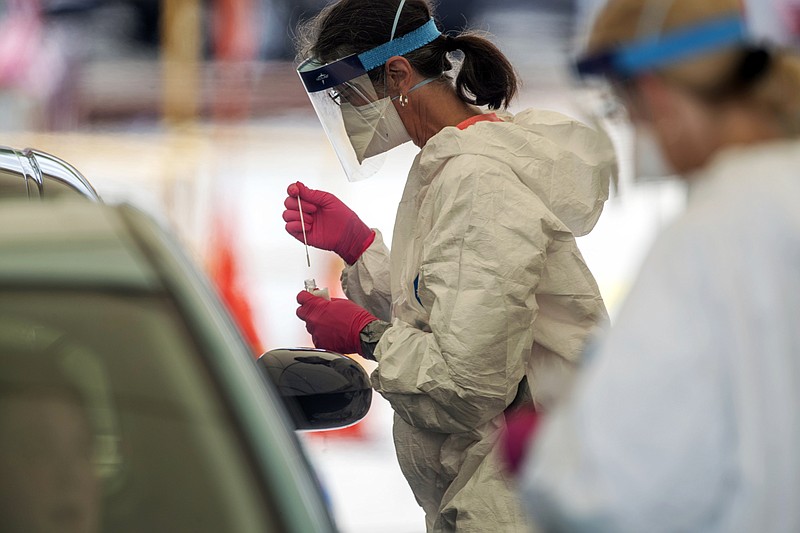No matter what any experts tell Americans about the COVID-19 virus, what we know is we don't know what we don't know.
Got it?
Since that is the case, we have to use the best public health information we have at the time, and the knowledge of what the virus stay-at-home orders have done to the economy, to move as safely and efficiently as possible in returning to work. That will mean protecting older and vulnerable Americans more than ever before, changing work habits so everyone remains safer, and prioritizing testing, tracing and other aspects of the virus that help us learn as much as possible about it.
We must acknowledge, though, we cannot know everything we need to know before returning to work, before rebuilding the economy and before considering our vote in the November presidential election.
For instance:
* We don't know what number of deaths from the virus - above zero - is statistically significant because of the ever-changing prediction of deaths from early and later models.
* We don't know why national media headlines and reports of "an increasing number of deaths" or "an increasing number of cases" of the virus persist, as if "increasing" numbers was a choice; after all, the number of deaths or cases is never going to go down (except, of course, when they are adjusted down after it's learned the deaths were more accurately attributed to something else).
* We don't know how to gauge the increase in virus cases because the increasingly wider availability of testing has made the likelihood of someone who has the virus but shows no symptoms a greater possibility.
* We don't know whether to be tested for the virus if we have no symptoms and haven't been around anyone with the virus because experts say the more people who are tested, the more accurate predictions we can make about what will happen.
* We don't know if the federal recommendation to reduce the number of cases for 14 days to "move on to the next phase" of reopening schools, venues or businesses is valid because of the increased availability of testing.
* We don't know how much testing will give virus experts a statistically accurate picture, if ever, of what the virus can be expected to do.
* We don't know how much of a rise in the virus upon reopening economies will be attributable to those reopenings or to the increased availability of testing.
* We don't know when the exact right date to open tourist attractions and theaters and stadiums is because there is no right date; a rise in virus cases is bound to happen no matter what the date is.
* We don't know what a good picture of the rate of virus recovery looks like because few media outlets print the number of people who have recovered from the virus.
* We don't know when a vaccine for the virus will be perfected, so waiting for that vaccine before opening our economies no longer makes sense.
* We don't know how to take to heart information about the virus because some of it comes from a president who exaggerates and some of that information comes from a national media that wants to put the worst face on things to hurt the president.
* We don't know why - other than for political purposes - Northeast blue state governors agreed in mid-April to coordinate their reopening plans, but, after feeling the pressure from out-of-work individuals and the reopening of red-state economies began to plot their own course toward reopening, as they should have in the first place.
* We don't know how much the collapsed economy will affect the presidential election because the president, in suggesting national stay-at-home warnings, was listening to the experts his opponents say he never listens to; however, because of those stay-at-home warnings, the economy collapsed.
* We don't know how much the collapsed economy will affect the presidential election because many of the younger and minority workers who have lost their jobs wouldn't have voted for President Donald Trump in the first place.
* We don't know how much the collapsed economy will affect the presidential election because many workers affected by the slow Obama economy voted for candidate Trump in 2016 and now see he has their back in wanting them to return to work despite the fears of their blue-state governors.
* We don't know how much the collapsed economy will affect the presidential election because at some point even the most liberal business owners want to eat and may begin breaking with their like-minded stay-at-home-or-else counterparts.
Going forward, we know we'll make some mistakes and wish we'd made different decisions in dealing with the virus. But move forward we must.
